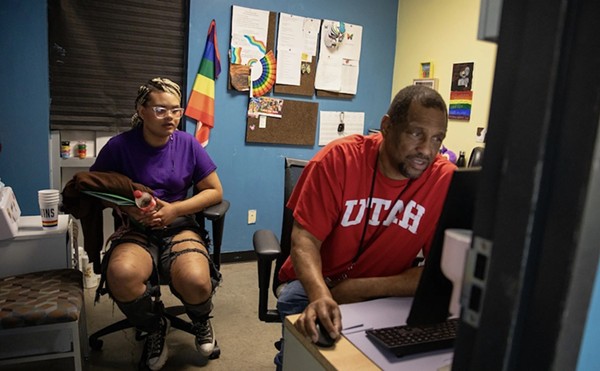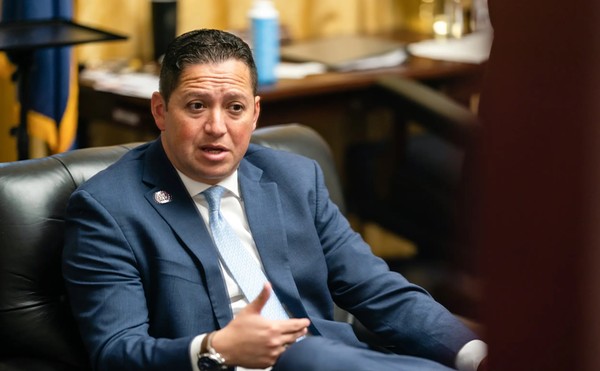The ability to vote—to have this process be simple, accessible, free of intimidation—is the cornerstone of a functioning democracy. The power of the vote is far-reaching, stretching miles beyond the ballot box. Now, thanks to a recent ruling by the Supreme Court, the right to vote could be limited for black, Latino, and poor voters in the state of Texas.
On June 25 the Supreme Court gutted the Voting Rights Act (VRA). Passed in 1965 this law protected minority voters by forcing Southern states with a history of voter intimidation and suppression to submit any changes in voting law to the Justice Department for review. By striking down Section 4(b) of the Act, which contained the formula for determining which localities required this preclearance, the Court effectively removed the enforcement power of the Act.
Through their decision, the Court expressed to the American people the sentiment that federal involvement to secure racial equality at the ballot box was no longer necessary. The reality on the ground in Texas proves otherwise, however.
Texas has a shameful history of suppressing the vote of minorities and the poor through the use of poll taxes, literacy tests, Ku Klux Klan intimidation and the 1905 adoption of party primaries that were closed to all non-whites. It would not be until 1944 that the Supreme Court ruled Texas’ racist primary restrictions unconstitutional and another 21 years would pass before the VRA actually challenged Texas’ policy of white supremacy at the ballot box.
But the extension of political rights to black and Latino voters was immediately challenged in the post-VRA period as Texas, along with the rest of the South, became a focal point of the Republican Party’s new “Southern Strategy.” Tired of playing second fiddle, Republicans sought to win Southern white voters—disaffected by the gains of the Civil Rights Movement—away from the Democratic Party to which they had belonged since the Civil War.
This strategy relied on “dog whistle” politics that not so subtly hid racist messaging behind a veneer of getting tough on crime and tax reform. As Republican strategist Lee Atwater infamously explained in 1981, “You start out in 1954 by saying, ‘nigger, nigger, nigger.’ By 1968 you can’t say ‘nigger’—that hurts you. Backfires. So you say stuff like forced busing, states’ rights and all that stuff. You’re getting so abstract now [that] you’re talking about cutting taxes, and all these things you’re talking about are totally economic things and a byproduct of them is [that] blacks get hurt worse than whites.”
Critical to this strategy in Texas was the attempted rollback of minority voting rights. As the Latino population in Texas grew and white men, the base of the Republican Party, became a minority in the state, the GOP focused its energy on disenfranchising non-white voters and reducing overall voter turnout.
A 2006 report by the Mexican-American Legal Defense and Education Fund (MALDEF) highlights this effort, revealing that between 1982 and 2006 Texas was second only to Mississippi in violations of the VRA.
Recently, in 2010 there were widespread reports of voter intimidation in black electoral districts in Harris County by the GOP-connected group True the Vote. In 2012 a federal court struck down redistricting plans and a proposed Voter ID law as being designed to disenfranchise minority voters.
Immediately following the Supreme Court’s crippling of the VRA, the Texas legislature moved to put the Voter ID law and redistricting map into practice.
Evidence today reveals that the GOP strategy of maintaining political power through voter suppression works. Texas currently has the lowest voter turnout in the country. Despite being a state where minority groups have outnumbered whites for a decade, the legislature is still two-thirds white.
The problem of voter suppression goes deeper than simply skewing election results and maintaining one party rule. Voting conveys citizenship. It implies the right to make demands of the state, to have one’s voice heard in more ways than through the electoral process. Limiting access to the vote takes this process in the opposite direction. Disenfranchisement directly communicates a lack of concern and interest in the disenfranchised group’s needs. More concretely, disenfranchisement leads to abuse on the part of the state and individuals against the disenfranchised.
It is hard not to see the connection between the continuing attack on voting rights in Texas and Governor Rick Perry’s brazen assault on women’s rights and moves to further militarize the border under the guise of immigration reform. In a country where citizenship means everything, not having the vote means not having even the simplest protections and rights. Refusal to actively protect equal access to the vote is decidedly less than democratic.


















